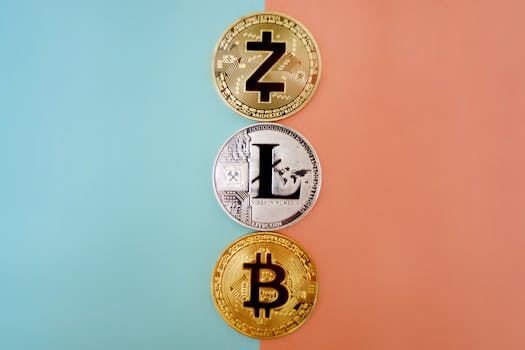The Benefits of Decentralized Internet for Privacy Protection
The internet has become an integral part of our daily lives, from communication and entertainment to shopping and banking. However, with the increasing use of the internet, concerns about privacy and security have also risen. The centralized nature of the internet, where data is stored and controlled by a few large corporations, has made it vulnerable to data breaches and surveillance. This has led to the rise of decentralized internet, a new approach to the internet that aims to give users more control over their data and privacy.
So, what exactly is decentralized internet? In simple terms, it is a network of interconnected devices that work together to store and share data, rather than relying on a central server. This means that data is not stored in one central location, making it less vulnerable to hacking and data breaches. Instead, data is distributed across multiple devices, making it more difficult for anyone to access or manipulate it without authorization.
One of the main benefits of decentralized internet is its ability to protect user privacy. With traditional centralized internet, users have little control over their personal data. They are required to provide personal information to access services and are often subjected to targeted advertising and data tracking. This not only invades their privacy but also puts them at risk of identity theft and other cybercrimes.
In contrast, decentralized internet allows users to have more control over their data. Since data is not stored in one central location, users can choose which information they want to share and with whom. This means that users can have more control over their online presence and can protect their personal information from being accessed by third parties without their consent.
Moreover, decentralized internet also offers better security for user data. With traditional centralized internet, data is stored in one location, making it an easy target for hackers. However, with decentralized internet, data is distributed across multiple devices, making it more difficult for hackers to access and manipulate it. This makes decentralized internet a more secure option for storing sensitive information such as financial data and personal records.
Another benefit of decentralized internet is its resistance to censorship. In centralized internet, governments and corporations have the power to control and censor the flow of information. This can limit freedom of speech and access to information. However, with decentralized internet, there is no central authority that can control or censor the flow of information. This means that users have more freedom to express themselves and access information without fear of censorship.
Furthermore, decentralized internet also promotes innovation and competition. With traditional centralized internet, a few large corporations have a monopoly over the market, making it difficult for new players to enter and compete. This can limit innovation and stifle competition. However, with decentralized internet, there is no central authority controlling the market, allowing for more competition and innovation. This can lead to the development of new and improved technologies, benefiting users in the long run.
In conclusion, the rise of decentralized internet has brought about many benefits, especially in terms of privacy protection. With its distributed nature, decentralized internet offers better security, privacy, and resistance to censorship. It also promotes innovation and competition, making it a promising alternative to traditional centralized internet. As more and more people become aware of the importance of privacy and security, the demand for decentralized internet is likely to increase, leading to a more decentralized and secure online world.
Exploring the Potential of Decentralized Internet in Safeguarding Personal Data

The internet has become an integral part of our daily lives, from communication and entertainment to shopping and banking. However, with the increasing reliance on the internet, concerns about privacy and security have also risen. The centralized nature of the internet, where data is stored and controlled by a few large corporations, has made personal information vulnerable to hacking and misuse. This has led to a growing interest in decentralized internet, which offers a potential solution to safeguarding personal data.
Decentralized internet, also known as Web 3.0, is a new approach to the internet that aims to give users more control over their data. Unlike the current internet, where data is stored on centralized servers owned by companies like Google and Facebook, decentralized internet uses a peer-to-peer network where data is distributed across multiple nodes. This means that there is no central authority controlling the data, making it less vulnerable to hacking and data breaches.
One of the main advantages of decentralized internet is its potential to protect user privacy. With data being stored and controlled by the users themselves, there is no single point of failure for hackers to target. This makes it much harder for them to access and misuse personal information. Additionally, decentralized internet uses encryption and other security measures to ensure that data remains private and secure.
Moreover, decentralized internet also offers users more control over their data. In the current centralized system, users have little say in how their data is collected, stored, and used by companies. This has led to concerns about data being used for targeted advertising and other purposes without the user’s consent. With decentralized internet, users have the ability to choose what data they want to share and with whom. This gives them more control over their online presence and reduces the risk of their data being used without their knowledge.
Another potential benefit of decentralized internet is its ability to prevent censorship and promote freedom of speech. In the current centralized system, companies have the power to control what content is allowed on their platforms. This has led to instances of censorship and the suppression of certain viewpoints. With decentralized internet, there is no central authority that can censor or control content. This allows for a more open and free flow of information, promoting diversity of opinions and ideas.
Furthermore, decentralized internet has the potential to create a more equitable online environment. In the current system, large corporations have a monopoly over user data, giving them a significant advantage over smaller businesses and startups. This has led to concerns about a lack of competition and innovation. With decentralized internet, data is distributed among users, giving smaller businesses and startups access to the same data as larger corporations. This promotes a more level playing field and encourages innovation and competition.
However, there are also challenges and limitations to the widespread adoption of decentralized internet. One of the main challenges is the technical complexity of building and maintaining a decentralized network. This requires a significant amount of resources and expertise, making it difficult for smaller companies and individuals to participate. Additionally, there is a lack of standardization and interoperability among different decentralized platforms, making it challenging for users to switch between them seamlessly.
In conclusion, the rise of decentralized internet offers a promising solution to the growing concerns about privacy and security on the internet. By giving users more control over their data and promoting a more open and equitable online environment, decentralized internet has the potential to revolutionize the way we use the internet. However, there are still challenges that need to be addressed before it can become a mainstream alternative to the current centralized system. As technology continues to evolve, it will be interesting to see how decentralized internet develops and impacts our online experiences.
The Role of Decentralized Internet in Empowering Individuals to Control Their Online Privacy
The internet has become an integral part of our daily lives, connecting us to the world and providing us with endless information and opportunities. However, with the rise of social media and online platforms, concerns about privacy have also increased. The centralized nature of the internet has made it vulnerable to data breaches and surveillance, leaving individuals with little control over their personal information. This has led to a growing demand for a more decentralized internet, where individuals have more control over their online privacy.
Decentralized internet, also known as Web 3.0, is a new approach to the internet that aims to give power back to the users. It is a network of interconnected devices that operate without a central authority, making it more secure and private. Unlike the current internet, where data is stored on centralized servers owned by corporations, decentralized internet stores data on a distributed network of computers, making it difficult for hackers to access and manipulate.
One of the main advantages of decentralized internet is its ability to empower individuals to control their online privacy. With the current internet, users have little control over their personal information. Social media platforms and search engines collect vast amounts of data about their users, which is then used for targeted advertising and other purposes. This lack of control over personal data has raised concerns about privacy and the misuse of personal information.
Decentralized internet, on the other hand, gives users more control over their data. With the use of blockchain technology, users can store their data on a distributed network, where they have the sole ownership and control over it. This means that users can choose what information they want to share and with whom, without the fear of it being accessed or used without their consent. This puts the power back in the hands of the users, giving them the freedom to decide how their data is used.
Moreover, decentralized internet also offers a higher level of security. With data stored on a distributed network, it is much harder for hackers to access and manipulate it. This is because there is no central point of attack, making it more difficult for cybercriminals to breach the system. This increased security not only protects personal data but also makes it more difficult for governments and corporations to conduct mass surveillance on individuals.
Another benefit of decentralized internet is its potential to eliminate censorship. With the current internet, governments and corporations have the power to censor content and control the flow of information. This can limit freedom of speech and access to information. However, with decentralized internet, there is no central authority that can control or censor content. This means that individuals have the freedom to express themselves without fear of censorship.
Furthermore, decentralized internet also promotes innovation and competition. With the current internet, a few large corporations dominate the market, making it difficult for smaller companies to compete. This limits innovation and stifles creativity. However, with decentralized internet, there is no central authority controlling the market, allowing for more competition and innovation. This can lead to the development of new and improved technologies, benefiting both users and businesses.
In conclusion, the rise of decentralized internet has the potential to revolutionize the way we use the internet and protect our privacy. By giving individuals more control over their personal data, promoting security and eliminating censorship, decentralized internet empowers individuals to take charge of their online privacy. As we continue to navigate the digital world, it is important to recognize the role of decentralized internet in promoting a more secure and private online experience.



